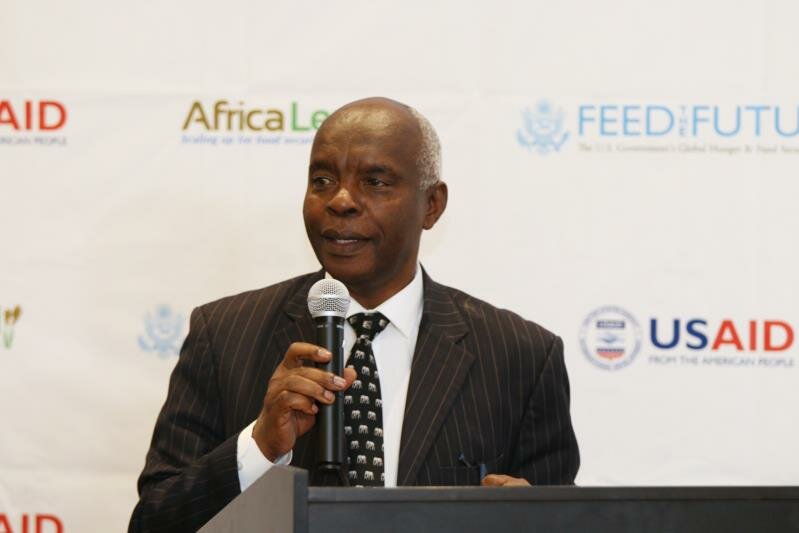Facilitative leadership, which has increasingly become the leadership style of choice in corporations worldwide, is now proving essential to effective development policies and programs throughout the African continent. This was the subject of Africa Lead’s Learning Series event, “The Hard Facts about the Soft Art of Facilitative Leadership,” which brought together over 90 participants from USAID, Kenyan Government institutions, development partners, civil society, and the private sector.
The purpose of this half – day event was to draw lessons learned about how diverse stakeholders with diverse interests work together in solving complex development problems. Facilitative leadership was defined as a leadership approach that is “people-centered” and “values-based.”
Keynote Speaker, Professor Kibutha Kibwana, Governor of Kenya’s Makueni County, said that, until recently throughout the African continent “development projects were owned by big men from government and were delivered to communities who had to be grateful to the big men.” He described how his county turned development processes upside down by putting village committees in charge of overseeing projects from start to finish, saying “we must re-invent leadership in which ordinary people are at the center of the development process.”
In addition to Keynote Speaker and USAID’s Mission Director for Kenya and East Africa, Mark Meassick, the event featured a panel of leaders, including Ann Onyango, Agriculture Secretary at Kenya’s Ministry of Agriculture, Livestock, Fisheries and Irrigation, who described the challenges in facilitating an inclusive process to develop Kenya’s new agriculture strategy. The leaders talked about how important it was to create a unified vision among stakeholders and to build trust through transparency and constant communication.
Another panel featured three participants from Africa Lead’s recently concluded 6-month Executive Leadership for African Food Security course. These panelists talked about how, after years of technocratic-style leadership, they used their newly acquired emotional intelligence skills and awareness to achieve much greater impact by facilitating the contributions of their colleagues and counterparts from other organizations. They also described how facilitative leadership, unlike authoritative leadership, can be done by anyone because it does not require positional authority. With a growing number of facilitative leaders, they said, there will be potential for huge gains in food security across the continent.
One of the goals of Africa Lead’s Executive Leadership course has been to develop a cadre of leaders committed to continuous learning and to sharing that learning with others. Governor Kibwana echoed this sentiment in his own words, saying “leadership creates leadership; if it doesn’t, it is not leadership.”
As part of the Learning Series, Africa Lead will make other learning materials available to the public around the topic of Facilitative Leadership. One of these will include a condensed 45-60-minute learning video comprised of video footage of this half-day event. We will also publish a short Learning Brief focused on lessons learned and recommendations from Africa Lead’s six years of experience in practicing and teaching facilitative leadership.
